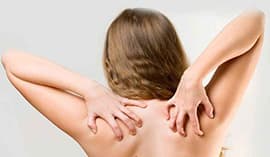Traditional Chinese Medicine (TCM) dates back to 21st century B.C; it’s the 3rd oldest form of medicine which has over 4000 years history. Only Egyptian and Babylonia predates it. The reason why TCM still exists and is widely practiced today is a testament to its value.
07496 450 908

Back pain, Sciatica, Lumbago, Frozen shoulder, Stiff neck, Tennis elbow, Sport injuries, Sprains, Arthritis, Bell’s palsy, Stroke, Rheumatism, and Neuralgia etc.

Stress, Insomnia, Depression, Anxiety, Panic attacks, Headaches, Fatigue, Migraine etc.

Fibroids, Infertility, Menopause, Cystitis, Irregular period, Dysmenorrhea, Pelvic inflammation, Multiple miscarriage, Pre-menstrual syndrome etc.
Low sex drive, Prostatitis, Impotence, Premature ejaculation, Urethritis Pyelonephritis, etc.

Hay fever, Sinusitis, Hair loss, Indigestion, Asthma, Bronchitis, cold & flu, Tinnitus Dizziness, Heart problem, Constipation, Ulcer, Diabetes, Colitis, Diarrhoea, High Blood Pressure, IBS, Gastritis, Nausea/Vomiting, Palpitation, Nephritis, Thyroid Disorders etc

Eczema, Dermatitis, Acne, Hair loss, Psoriasis, Herpes, Vitiligo, Alopecia, Fungal Infection etc.

Alcohol, tobacco
Yin yang theory is the core part of this ancient medicine. Yin and yang are neither materials nor energy; their theory is a kind of logic which was developed into a system of thought to explain complicated phenomena in the universe. Traditional medicine is an example of one area where the yin yang theory is used to understand complicated relationships in the body.

TCM sees health as a balance in the body of the two opposing and complementary aspects of yin and yang; they mutually restrict and depend on one another. In our body, the physical form belongs to yin while the bodies activities or physiological functions belong to yang. The physiological function cannot play its roll if it doesn’t have physical form in which to perform them and in turn the physical form cannot metabolize to obtain energy without the physiological function to work along with it.

Yin yang harmony will provide us the correct flow of Qi (vital energy) which make our body to function well and has good immunity allowing them to recover easier from illness. But when this balance is disturbed by lifestyle, poor diet or outside influence etc. then the flow of Qi is blocked or becomes deficient. This manifests itself as the symptoms of disease. TCM aims to active the innate healing ability of the body with its own way to have this balance back to our body so that the patient is not only symptoms free but is healthy and full of vitality.
The yin yang theory has close relationship with the Five Elements Theory. They are often used simultaneously to explain natural phenomena. Ancient Chinese medical philosophers integrated these two theories into their medical practices as early as 400BC. As integration of these theories took place, a more formalized system of medicine was established. Today we refer to this medical system as Traditional Chinese Medicine (TCM)